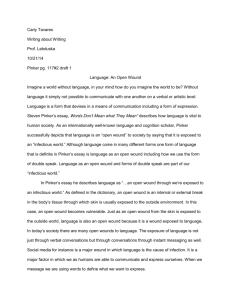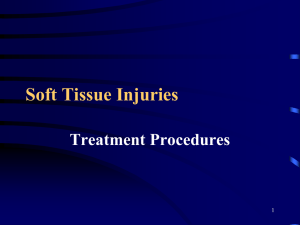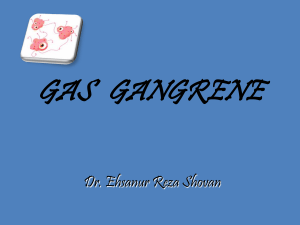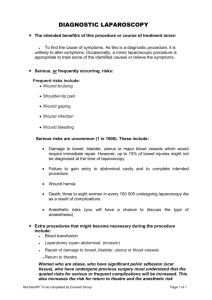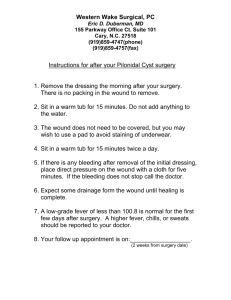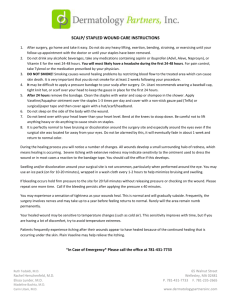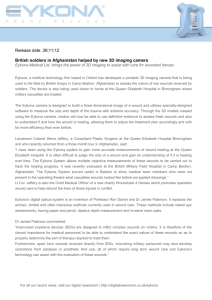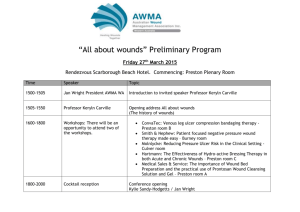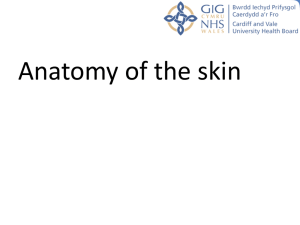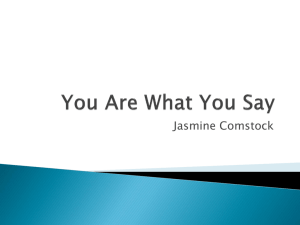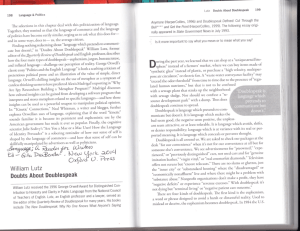essay 2 Language open wound
advertisement
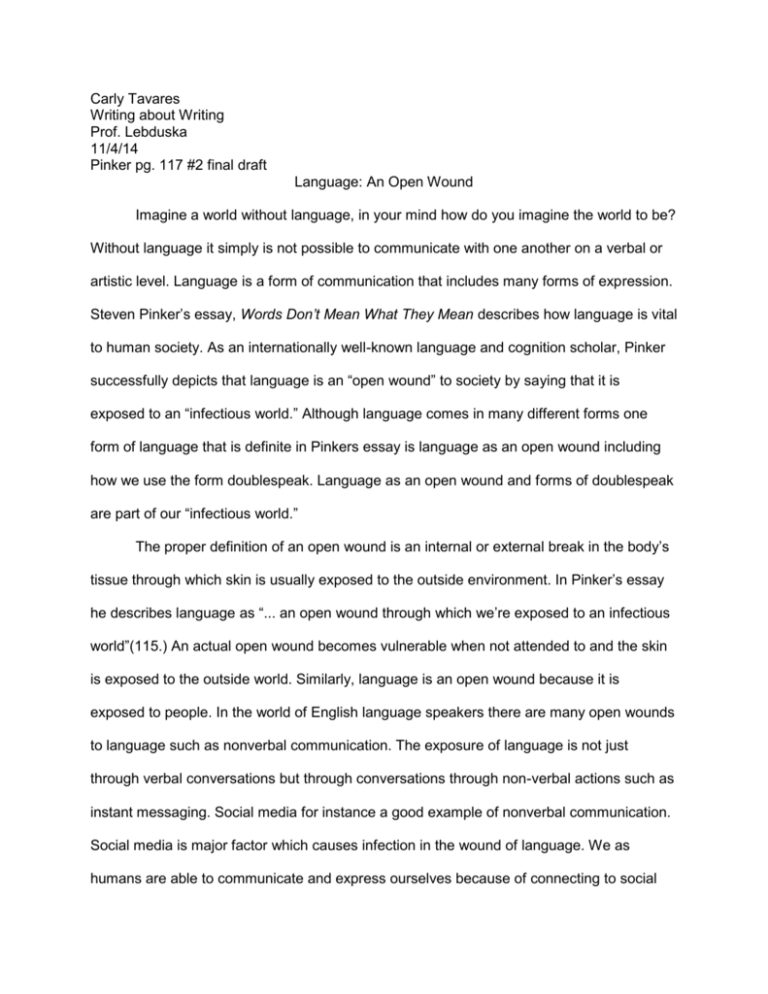
Carly Tavares Writing about Writing Prof. Lebduska 11/4/14 Pinker pg. 117 #2 final draft Language: An Open Wound Imagine a world without language, in your mind how do you imagine the world to be? Without language it simply is not possible to communicate with one another on a verbal or artistic level. Language is a form of communication that includes many forms of expression. Steven Pinker’s essay, Words Don’t Mean What They Mean describes how language is vital to human society. As an internationally well-known language and cognition scholar, Pinker successfully depicts that language is an “open wound” to society by saying that it is exposed to an “infectious world.” Although language comes in many different forms one form of language that is definite in Pinkers essay is language as an open wound including how we use the form doublespeak. Language as an open wound and forms of doublespeak are part of our “infectious world.” The proper definition of an open wound is an internal or external break in the body’s tissue through which skin is usually exposed to the outside environment. In Pinker’s essay he describes language as “... an open wound through which we’re exposed to an infectious world”(115.) An actual open wound becomes vulnerable when not attended to and the skin is exposed to the outside world. Similarly, language is an open wound because it is exposed to people. In the world of English language speakers there are many open wounds to language such as nonverbal communication. The exposure of language is not just through verbal conversations but through conversations through non-verbal actions such as instant messaging. Social media for instance a good example of nonverbal communication. Social media is major factor which causes infection in the wound of language. We as humans are able to communicate and express ourselves because of connecting to social media networking sites such as Facebook. When we message we are using words to define what we want to express. Facebook is one of the communicating tools on the internet in which we are able to connect to others without having to see other people. Since language is an important means of communication, this communication leads to an open wound of words not meaning what they really mean. Pinker says, “Words let us say the things we want to say and also things we would be better of not having said” (115.) This leads to a wound where language can be hurtful. As the saying goes “there is a time and place for everything” it is also the case in social media. Through social media what one person posts may be acceptable to one person but harmful to another and this expression can lead to a social controversy from one bad comment posted on the internet. Even if the comment is deleted off the site it is never really deleted off the internet. We are trapped by what we say on the internet because everything that we say is recorded and is left out of our control. It is part of the infectious world in which we live in because anything posted on the internet spreads from one viewer to the next in seconds. When we use Facebook we are putting ourselves out there for viewers to see and if you think about what you post on Facebook do you really keep in mind of what you are saying? Language is a form of communication in which society uses words to hide the real truth. Pinker is not surprised “that we sheathe our words in politeness and innuendo and other forms of doublespeak” because it is true. Every day we use a form of doublespeak without realizing it. People speak indirect to speech to “save face”, not to hurt feelings. In this case the question of “Why don’t people say what they mean (115)” arises. Pinker gives the reason as to why this is, simply because people are touchy about their relationships. Sentences need to convey a message and negotiate in the relationship, without it, any filter of politeness is lost. This is the main reason as to why people are indirect. One way in which we encounter doublespeak is through intimate relationships. Pinker displays this issue as a “linguistic dance” where the whole point to getting further into the intimate relationship is sex. One does not simply say “Do you want to have sex with me?” it is simply not a phrase we use to get the other person in bed with you. There is a fine line between sex and romance. The word sex implies an action that has no emotional feeling which in some cases is often selfish. Romance on the other hand is an action which conveys emotional feeling, passion, love and is often selfless. A good example of the linguistic dance would be the action of hooking up. When we try to have sex with someone you are trying to stimulate them to get them to hook up with you however, with romance you are trying to use language and or body language to stimulate the romantic emotion. We may use seduction as doublespeak in intimate relationships to get the end result of sex, but it is how the expression is delivered to the other person which changes the linguistic dance. We all do the dance to protect ourselves from the open wound to keep the relationship. By doing the linguistic dance we are giving our emotions a chance to become vulnerable, which is a chance for an open wound to occur. Language is many open wounds which involves an open world and Pinker describes this in his essay by saying that, “we are exposed to an infectious world (115.)” By being exposed to this world we are able to have many open wounds which help define different type of language. An infection is what happens when a virus spread rapidly and causes damage. Much like a post on the internet, it is a damaging factor to creating an open wound to language. Languages which convey body language and emotion are open wounds which explore the idea that words just don’t have a meaning unless fully expressed through the actions that follow our words. Words not meaning what they really mean completes Pinkers message that we as humans tend to “beat around the bush” by not saying what we want to say directly. Sometimes being direct in what we want to say can be difficult because we want to figure out the best way to say what we want to say in a way which does not confuse or offend someone. Open wounds are essential to our way of life and without them we would not be able to explore the many different means of communication in language.
